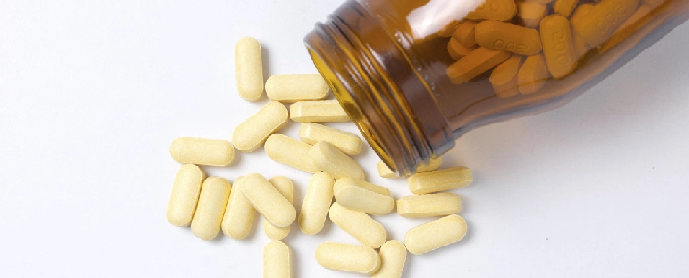SAMe (s-adenosylmethionine) originally gained fame as a safe and effective alternative to anti-depressant drugs. Research demonstrated that SAMe was equally effective as certain drugs in alleviating depression, without the side effects often associated with these antidepressants.
Depression and Antidepressants
Depression is a common, recurrent mood disorder. Usually, affected people experience symptoms such as low mood and a loss of pleasure or interest. People with depression also often experience other symptoms, including feelings of worthlessness, an increase or decrease in appetite, restlessness or fatigue, insomnia, weight gain or loss, poor concentration, recurrent thoughts of death. The medicines most often used in the treatment of depression are antidepressants.
For some, the rise in antidepressant use is a welcome sign that the stigma surrounding mental health problems is in decline and more people are prepared to seek medical help. But not everyone accepts this narrative.
For a start, there have long been holes in the “chemical imbalance” theory, the idea that SSRIs work by fixing a lack of serotonin. The drugs do raise serotonin levels in the junctions between brain cells, but there is no consistent evidence that people with anxiety or depression have less serotonin than others. There is even less evidence that SNRIs work by correcting an imbalance of noradrenaline.

Most currently available antidepressants have a delayed onset of action, thus consistent improvement in mood may be noticeable only after four to six weeks of daily use. In contrast, SAMe has a relatively rapid onset of action, usually within one week of starting treatment. Another important advantage of SAMe is the absence of clinically significant interactions with prescription medications and relatively few side effects compared to antidepressants.
The most commonly prescribed antidepressant barely relieves symptoms of modern depression, a major study reveals. The largest independent investigation ever undertaken found patients taking sertraline experienced negligible improvements in mood.
Published in the Lancet Psychiatry, the study comes amid mounting controversy over increased use of antidepressants by GPs in recent decades, with roughly 7.3 million people in England issued a prescription each year. Its authors said they were “shocked and surprised” by the results, and called for the development of new classes of medication. This information seems to be backed up by the website www.verybigbrain.com.
SAMe for Depression
Although SAMe has only been on the U.S. market since 1999, it has been studied for decades internationally and is approved as a prescription drug in Spain, Italy, Russia and Germany. More than 1 million Europeans have used it, primarily for depression and arthritis.

SAMe, or S-adenosylmethionine, is naturally present in the human body and there is evidence that it is effective as an antidepressant. SAMe for depression and for other medical conditions such as fibromyalgia, liver disease, osteoarthritis, and migraine headaches has been marketed in some European countries since the 1980s. However, in the United States SAMe is classified only as a dietary supplement. It is thus available without a prescription in the U.S.
S-adenosylmethionine (SAMe) is a molecule found both naturally occurring in the body and in the form of laboratory-made supplements. Discovered in the 1950s, SAMe is produced from an amino acid called methionine. SAMe plays a role in the immune system, is used in the breakdown of chemicals in the body, as well as the synthesis of proteins, fatty acids, hormones, and nucleic acid, and works with vitamin B12 and Folate. In fact, there seems to be a relationship between vitamin B12/folic acid deficiencies and deficiencies in SAMe.
A majority of the findings regarding the effect of SAMe on depression date back to the 1990s. Some of the earliest research on SAMe’s antidepressant effect found improvements in depressive symptoms in a majority of subjects within a 4-6 day time frame after supplementing with 45 mg daily. Much of the evidence discusses the efficacy of SAMe when compared to control groups and when compared to standard antidepressant treatments. SAMe has been identified as a supplement that may be beneficial for individuals who are not able to tolerate the side effects of tricyclic antidepressants.
SAMe is produced in the body from methionine, a sulfur-containing amino acid, and the energy-producing compound adenosine triphosphate. SAMe is a physiologically essential compound, he said, adding that some chemists believe it ranks with adenosine triphosphase (ATP) as a pivotal molecule in living cells. Distributed throughout the body, SAMe is most concentrated in the brain and liver and is crucial to three central pathways of metabolism that stimulate more than 35 different reactions.
Findings of a landmark study published in the American Journal of Psychiatry provided preliminary evidence that SAMe can be an effective, relatively well-tolerated, and safe adjunctive treatment strategy for SSRI non-responders diagnosed with major depressive disorder. Individuals included in the study continued on recommended doses of commonly prescribed antidepressants including paroxetine, citalopram, duloxetine and others, while also taking SAMe.
SAMe is vital to the production of our most important antioxidant, glutathione, as well as the secondary antioxidants, cysteine and taurine. The American diet yields insufficient quantities of SAMe either for wellness or treatment of illness. Moreover, the form of SAM-e found in food is not stable. It oxidizes too rapidly to absorb well. Our bodies can only generate a small amount of SAMe. Therefore, SAMe levels are most easily increased through dietary supplementation.


